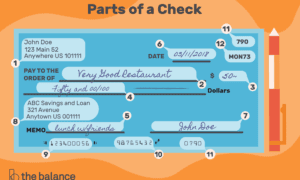Debt can feel like a heavy load to carry, but if you negotiate it carefully, you can find a way out without adding to your stress. No matter if you are negotiating medical bills, credit card debt, or loans, it is important to have the right plan in order to find a solution that you can handle. This blog will show you the most important steps and give you useful advice for negotiating your debts.
1. Understand Your Debt Situation
Get all the information about your debt, such as the total amount you owe, the interest rates, the due dates, and any penalties. Write down the names of all your debtors and how much you owe each one. This will help you understand your money situation better.
2. Communicate with Creditors
Open communication with your creditors is crucial. Don’t ignore them. Contact each creditor to explain your situation. Be honest about your ability to pay and ask if they would consider negotiating your debt.
Many creditors are willing to work with you, especially if you show a genuine willingness to pay. Set a time to talk to each creditor and be ready to listen to their terms. It’s important to remain calm and respectful during these discussions to avoid unnecessary conflict.
3. Know Your Rights
Different countries and regions have laws that protect consumers from unfair debt collection practices. Familiarize yourself with these laws, so you know what creditors can and can’t do. Knowing your rights helps you avoid being pressured or manipulated into agreeing to unfair terms. You may also be able to challenge certain collection practices if they violate the law.
4. Explore Debt Relief Options
There are several debt relief options available, depending on your situation. Some common options include debt settlement, consolidation, or seeking help from a credit counseling agency.
Debt settlement involves negotiating a lump sum payment for less than what you owe, while consolidation combines all debts into one with a lower interest rate.
Talk to a financial advisor or credit counselor to explore which option is best for you. It’s important to fully understand the benefits and risks of each option before making a decision.
5. Create a Realistic Payment Plan
After talking with your creditors, it is time to make a payment plan that you can actually stick to. Your current financial situation, including how much money you make and how much you spend on necessities, should guide this plan. Make sure the payment amount you agree to is one you can afford so you do not fall behind again.
To get your creditors to trust you again, make sure you follow the plan and pay on time. Check your budget often to make sure you are on track and make changes as needed.
Be Sure About the Process
Remember, it’s essential to stay committed to the process and communicate clearly with your creditors. If you’re feeling uncertain about the negotiation process or need expert assistance, seeking professional help can ensure a smoother experience. For expert advice and support, you can explore services like Credit Mediation debt negotiation.





























